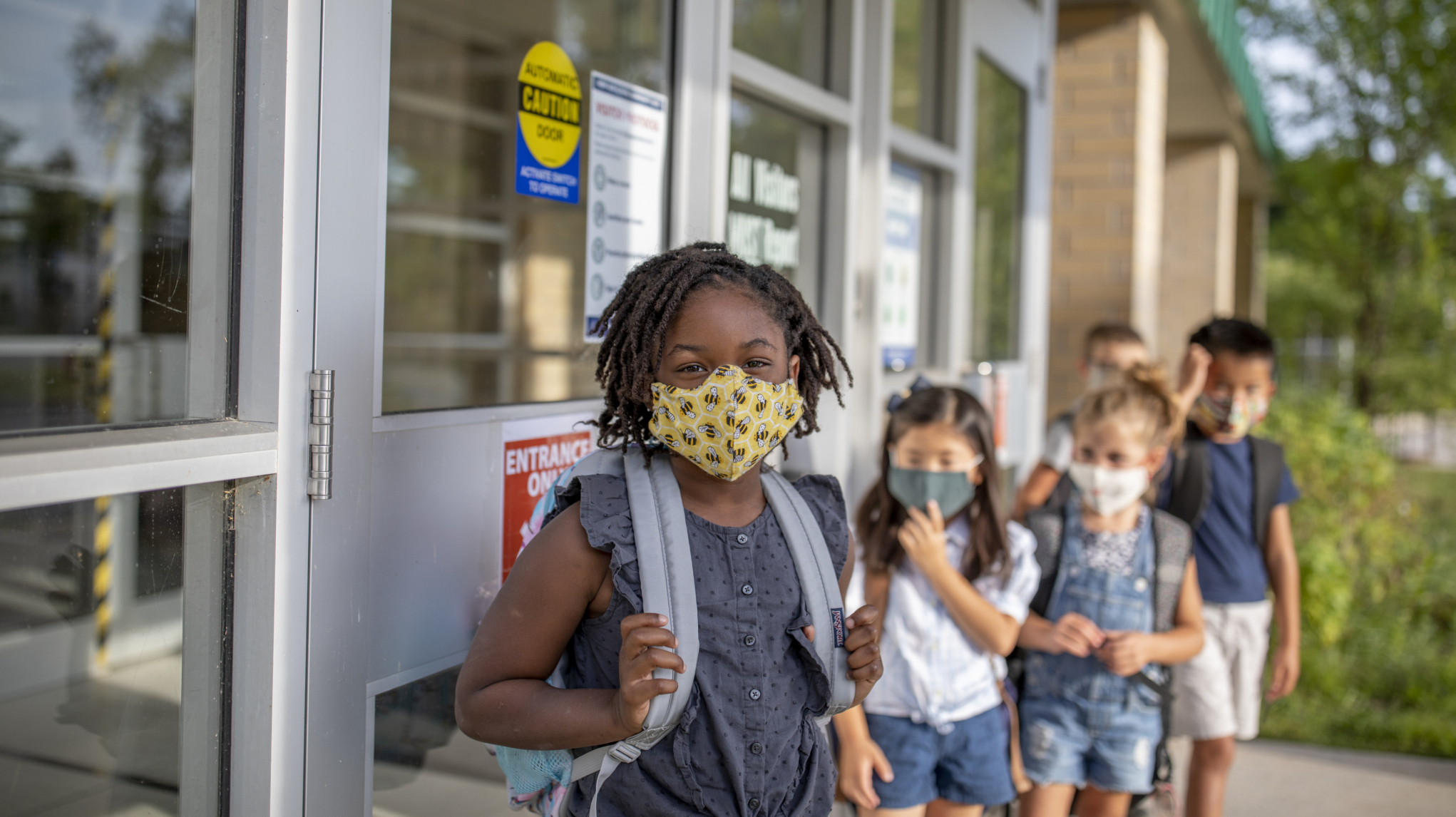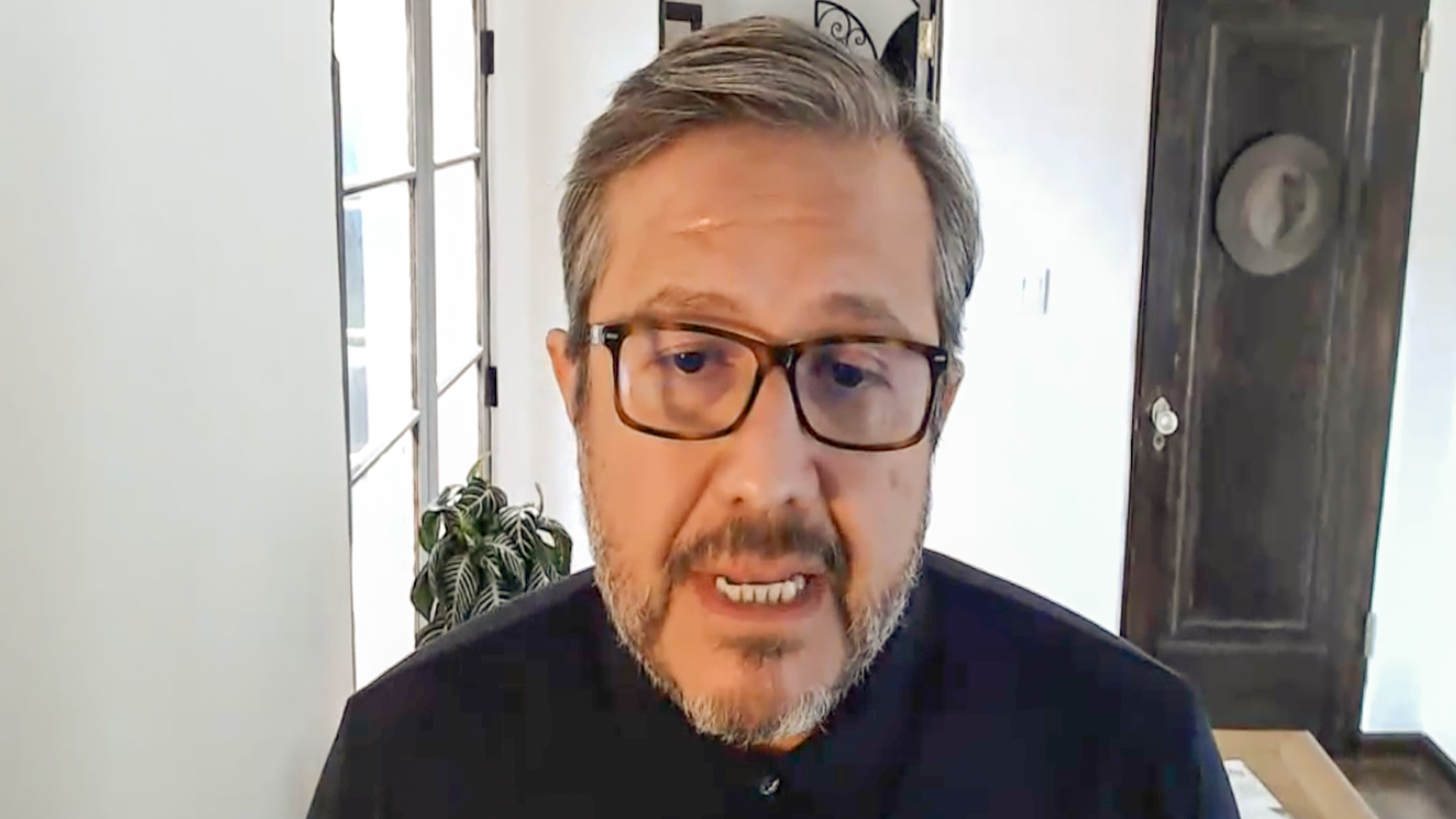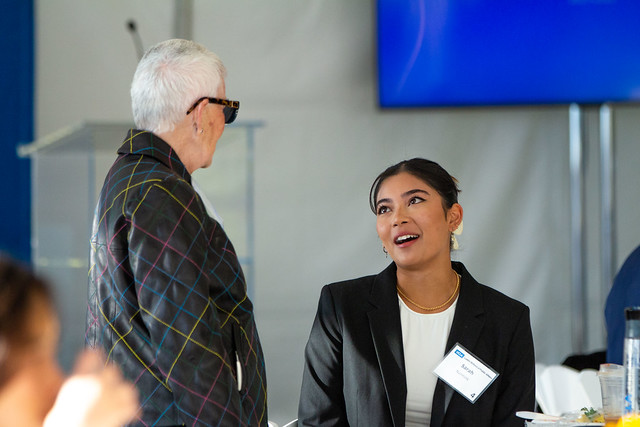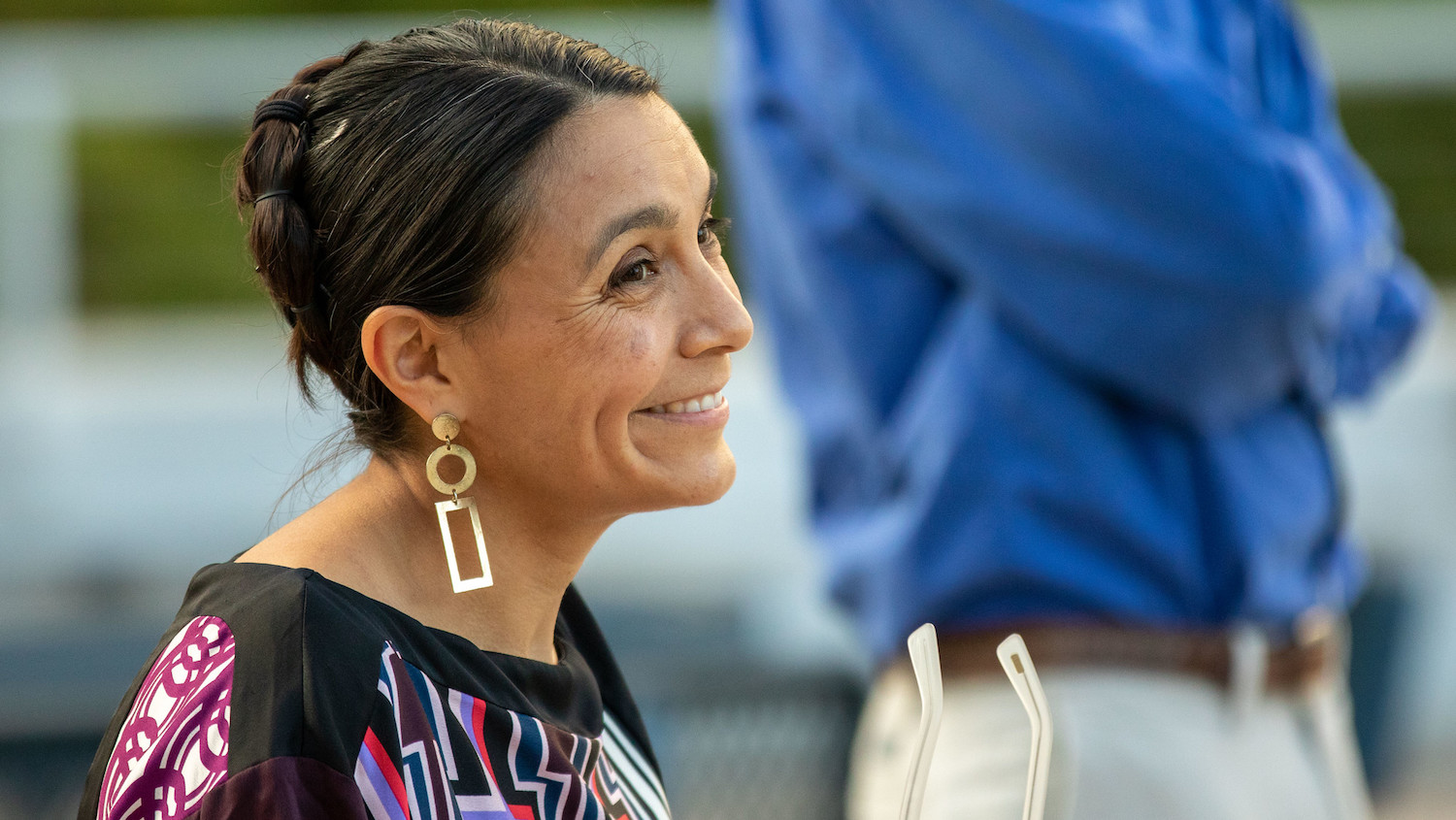New Paper Analyzes Impact of School Closures on Families
Social Welfare Professor Ron Avi Astor and doctoral student Kate Watson collaborated on a new paper highlighting the needs of children and families during school closures caused by the COVID-19 pandemic. The paper, published in Social Work, analyzed responses to a nationwide survey of 1,275 school social workers who reported on their clients, including schools, children and families, during the COVID-19 school closures in spring 2020. While other reports have focused on academic challenges facing students during the pandemic as well as the effects of online learning on academic success, the authors identified a knowledge gap in understanding the needs and difficulties of K-12 students and their families from a social work perspective. In their responses to the survey, school social workers indicated that the children and families they served had significant unmet basic needs, including for food, health care and housing. “Poverty and mental health compounded pandemic difficulties, which were associated with the sociodemographic makeup of schools,” wrote Watson, the paper’s lead author, with co-authors Astor and colleagues from Hebrew University, Cal State Fullerton and Loyola University Chicago. Based on the survey results, the authors identified several policy and practice implications for the future. They highlighted the need for “additional services for students and families, a plan to address structural inequities in our schools and communities, coordinated outreach to reengage missing students, and recognition of the strong work being done by school staff coupled with a need for additional supports and resources to combat persistent inequality.” — Zoe Day
Reber Assesses Federal COVID-19 Aid for Schools
Associate Professor of Public Policy Sarah Reber co-authored a new working paper in the National Bureau of Economic Research assessing the federal relief bills created for schools during the COVID-19 pandemic. The paper, a joint project by Reber and Nora Gordon, a professor of public policy at Georgetown University, explored whether federal COVID relief funds for schools were sufficient. Congress responded to the disruptions caused by the pandemic by distributing $200 billion in federal aid for schools through the Elementary and Secondary School Emergency Relief (ESSER) funds. While this amount is about 12 times more than the typical level of funding distributed through Title I, Reber noted that the amount of per-pupil federal aid that schools received varied considerably across districts. For example, some districts in Detroit received $6,000 per pupil while districts like nearby Bloomfield Hills received less than $100 per pupil. The authors pointed out that different districts faced different costs for COVID-19 mitigation and recovery. Reber and Gordon estimated the net fiscal impact of COVID-19 and the federal relief by taking into consideration how much COVID-19 affected costs for schools, how those costs depend on child poverty rates, and the effect of the pandemic on state aid to school districts. Federal aid was distributed based on Title I proportions, sending more money per pupil to higher-poverty districts. “Low-poverty districts are therefore projected to face some budgetary shortfalls, while many higher-poverty districts are projected to have excess funds, which they could direct towards long-standing challenges,” Reber explained. — Zoe Day
CEO Tells Why Weingart Foundation Supports Latino Data Initiatives
The UCLA Latino Policy and Politics Initiative (UCLA LPPI) has received $125,000 in general funding over two years from the Weingart Foundation. It’s a commitment that CEO Miguel Santana said is representative of the organization’s effort to advance social and racial justice in Southern California. Not only is the grant recipient helmed by the “best and brightest of the Latino community,” Santana said, but “UCLA LPPI, along with the Luskin School, are leading in the effort to confront inequities in Los Angeles through research and analysis.” The Weingart Foundation advocates for empowering affected communities and basing social justice on robust data, choosing not to be prescriptive with its grants. Rather, Santana stressed, they “support organizations in Southern California based on the idea that they know best how to use their dollars.” Santana is one of the few Latino leaders of a philanthropic foundation. He previously served on the Luskin School’s Board of Advisors and continues to chair the Committee for Greater LA, where he and other civic leaders worked on the landmark report, “No Going Back: Together for an Equitable and Inclusive Los Angeles,” with UCLA Luskin Dean Gary Segura and professor Manuel Pastor of USC’s Equity Research Institute. “I was very fortunate to work closely with Dean Segura during my time as a board member,” Santana said. “He is a thought leader on issues for the future of SoCal, and Angelenos are lucky to have him.” —Alise Brillault
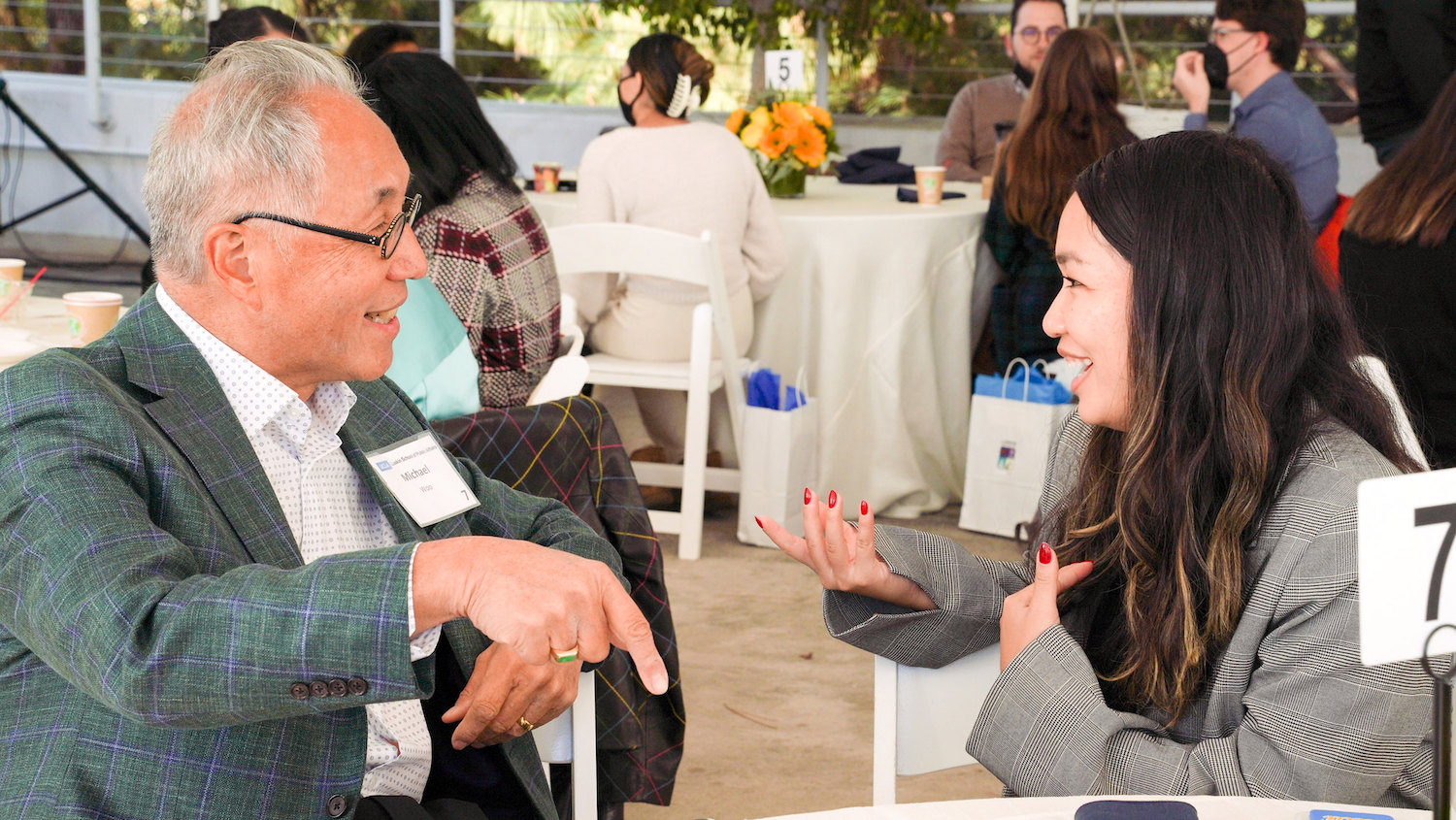
Senior Fellows Leadership Program Launches 25th Year
The Senior Fellows Leadership Program at UCLA Luskin kicked off its 25th year with a welcome breakfast that brought graduate students together with their new mentors — all leaders in the public, private and nonprofit arenas. The Oct. 21 gathering featured remarks from Ken Bernstein, principal city planner for the city of Los Angeles, and public policy student Steven King, who also participated in the Senior Fellows program last year. Bernstein, a national advocate for historic preservation, spoke of the region’s rich architectural resources, highlighted in his new book “Preserving Los Angeles: How Historic Places Can Transform America’s Cities.” Each attendee at the breakfast received a copy, and Bernstein encouraged both students and Senior Fellows to seek out unexplored corners of Los Angeles to understand that it is more than “just a bunch of bright lights and undifferentiated sprawl.” “Historical preservation has been a driving engine for change in Los Angeles, whether you are working in public policy or planning or social welfare,” Bernstein said. “There’s so much rich work that’s happening at the grassroots level, at the local level, and there are few places more interesting than Los Angeles in terms of really making a difference.” King described last year’s rewarding experience with a mentor who was willing to answer any question, discuss current legislation, provide access to meetings between policymakers and advocates, and offer advice about choosing classes and pursuing internships. He said the Senior Fellows program is helping him to “gain valuable lifelong skills to help me become a successful advocate and leader in the world.”
California Latinos’ Use of Emergency Medical Services Rose During Pandemic
Prior to the COVID-19 pandemic, Latinos in California were relatively unlikely to use emergency medical services. But during the pandemic, across much of the state, Latinos’ use of such services — specifically seeking treatment for respiratory ailments — increased more than it did for non-Latino whites, according to a new report by the UCLA Latino Policy and Politics Initiative. The report’s authors compared figures for the first six months of 2020 to statistics for the same period in 2019. They analyzed data from the California Emergency Medical Services Information System, which includes information from all of the state’s 33 local emergency medical service agencies with the exception of Los Angeles County. “Although the study doesn’t directly account for about 30% of California’s Latinos who live in Los Angeles, other studies on the impact of COVID-19 on Latinos in L.A. would suggest that the same phenomenon would hold true in Los Angeles,” said Esmeralda Melgoza, a doctoral student at the UCLA Fielding School of Public Health and a co-author of the report. The study’s findings suggest that emergency medical services statewide have an opportunity to improve their language and cultural literacy to better serve the needs of their Latino patients. The study identified factors that kept Latinos from using emergency services prior to the pandemic, including concerns about the costs of emergency care and fears that interaction with public safety officials could endanger their immigration status. After the pandemic began, their use of emergency services for urgent respiratory illness pointed to the toll COVID-19 took on Latino essential workers and families. — Rodrigo Dominguez-Villegas
A Community-Building Vision for the Chicano Studies Research Center
As the director of UCLA’s Chicano Studies Research Center, Veronica Terriquez draws on her background as a community organizer to enhance Latino community networks and presence on campus, and further support university-community partnerships. On Sept. 24, UCLA announced steps it was taking as it seeks to achieve Hispanic Serving Institution status, and Terriquez and the center’s staff and faculty will become partial stewards of that process. The center will administer the hiring of 15 new faculty positions and 20 postdoctoral fellows whose teaching, scholarship or mentoring experience has ties to Latino experiences. “Research shows that underrepresented students fare better when they have a faculty mentor who can relate to their experiences,” said Terriquez, a professor of urban planning at UCLA Luskin. Terriquez has also expanded the Chicano Studies Research Center’s faculty advisory committee, which now includes a greater breadth of disciplinary backgrounds. And on Nov. 1, the center is planning a special virtual Dia De Los Muertos event, open to the UCLA community. “The program will feature Dia de Los Muertos-related arts and performances, but it will also feature the hard data that remind us of the devastation Latinx communities have experienced during the current pandemic,” Terriquez said. “It will be a celebration and a call to action because we can’t let this happen again.” Looking ahead, Terriquez will be working on California Freedom Summer, a project that will train and place college students as summer 2022 interns at nonprofit organizations where they will focus on voter education ahead of the fall midterm elections. — Jessica Wolf

